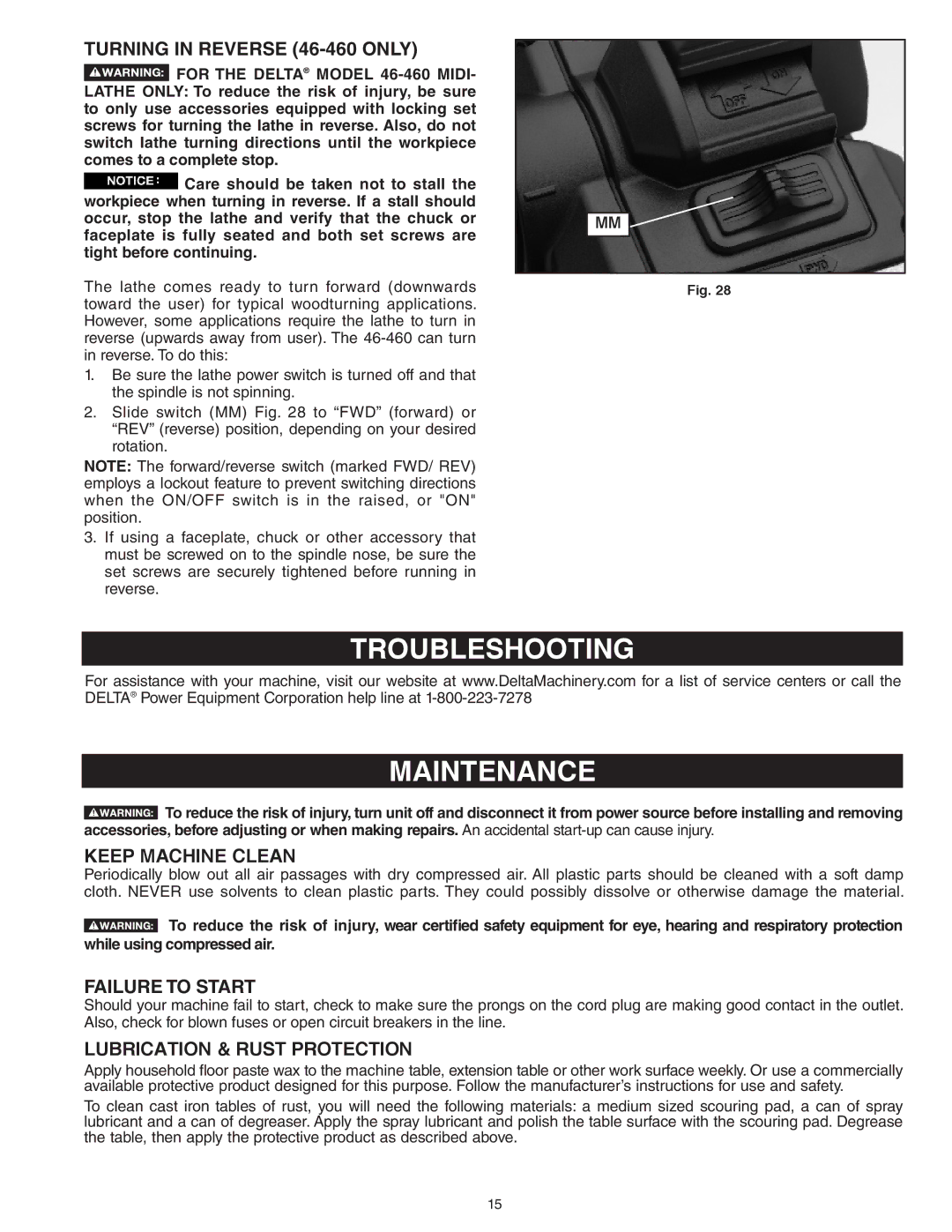
TURNING IN REVERSE (46-460 ONLY)
![]() FOR THE DELTA® MODEL
FOR THE DELTA® MODEL
Care should be taken not to stall the workpiece when turning in reverse. If a stall should occur, stop the lathe and verify that the chuck or faceplate is fully seated and both set screws are tight before continuing.
MM ![]()
The lathe comes ready to turn forward (downwards | Fig. 28 | |
toward the user) for typical woodturning applications. |
| |
However, some applications require the lathe to turn in |
| |
reverse (upwards away from user). The |
| |
in reverse. To do this: |
| |
1. | Be sure the lathe power switch is turned off and that |
|
| the spindle is not spinning. |
|
2. | Slide switch (MM) Fig. 28 to “FWD” (forward) or |
|
| “REV” (reverse) position, depending on your desired |
|
| rotation. |
|
NOTE: The forward/reverse switch (marked FWD/ REV) employs a lockout feature to prevent switching directions when the ON/OFF switch is in the raised, or "ON" position.
3. If using a faceplate, chuck or other accessory that must be screwed on to the spindle nose, be sure the set screws are securely tightened before running in reverse.
TROUBLESHOOTING
For assistance with your machine, visit our website at www.DeltaMachinery.com for a list of service centers or call the DELTA® Power Equipment Corporation help line at
MAINTENANCE
![]() To reduce the risk of injury, turn unit off and disconnect it from power source before installing and removing accessories, before adjusting or when making repairs. An accidental
To reduce the risk of injury, turn unit off and disconnect it from power source before installing and removing accessories, before adjusting or when making repairs. An accidental
KEEP MACHINE CLEAN
Periodically blow out all air passages with dry compressed air. All plastic parts should be cleaned with a soft damp cloth. NEVER use solvents to clean plastic parts. They could possibly dissolve or otherwise damage the material.
![]() To reduce the risk of injury, wear certified safety equipment for eye, hearing and respiratory protection while using compressed air.
To reduce the risk of injury, wear certified safety equipment for eye, hearing and respiratory protection while using compressed air.
FAILURE TO START
Should your machine fail to start, check to make sure the prongs on the cord plug are making good contact in the outlet. Also, check for blown fuses or open circuit breakers in the line.
LUBRICATION & RUST PROTECTION
Apply household floor paste wax to the machine table, extension table or other work surface weekly. Or use a commercially available protective product designed for this purpose. Follow the manufacturer’s instructions for use and safety.
To clean cast iron tables of rust, you will need the following materials: a medium sized scouring pad, a can of spray lubricant and a can of degreaser. Apply the spray lubricant and polish the table surface with the scouring pad. Degrease the table, then apply the protective product as described above.
15
